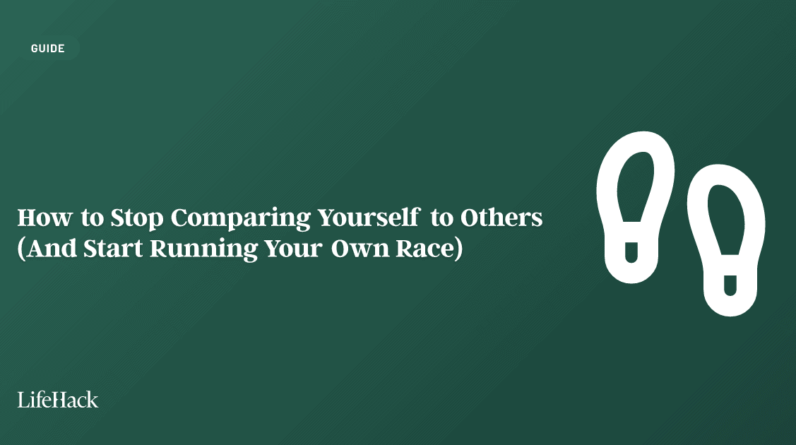
Do you feel lonely?
Loneliness is an increasingly common and deeply rooted emotional experience that affects millions of people worldwide.
Contrary to popular belief, loneliness isn’t only defined by physical isolation but rather by:
- a subjective sense that you are lacking meaningful connections and
- a sense of belonging
As social creatures, humans thrive on connection and interaction, making loneliness a significant psychological challenge to overcome.
In this article, we delve into the intricacies of loneliness, exploring its psychological hooks, and provide five powerful strategies to help individuals combat this pervasive feeling and cultivate a fulfilling social life.
Understanding Loneliness
Loneliness is a complex emotional state that stems from a discrepancy between an individual’s desired and actual social connections.
One common description of loneliness is the feeling we get when our need for rewarding social contact and relationships is not met. – mind.org.uk
It’s important to recognize that loneliness can affect anyone, regardless of their social status, age, or background.
It can be triggered by various life circumstances, such as:
- relocation
- relationship changes
- the loss of a loved one
Loneliness can manifest as a chronic condition or a temporary feeling, but its impact on mental and physical well-being should not be underestimated.
According to the Loneliness Statistics 2022, 29 countries participated in the survey, and 33% of adults across all of them reported that they feel lonely, or experience loneliness.
Psychological Hooks of Loneliness
1. The Perception of Social Rejection.
One of the psychological hooks of loneliness is the perception of social rejection.
Individuals who feel lonely often interpret social cues in a negative light, believing that others are intentionally excluding or rejecting them. This cognitive bias reinforces their sense of isolation, leading to a vicious cycle of withdrawal and further loneliness.
2. Fear of Vulnerability.
Loneliness can be perpetuated by a fear of vulnerability, where individuals hesitate to open up emotionally due to the fear of rejection or judgment.
This fear acts as a barrier, hindering the formation of genuine connections and leaving individuals feeling disconnected and alone.
3. Negative Self-Perception.
Loneliness is closely intertwined with negative self-perception.
Individuals who experience chronic loneliness may develop low self-esteem, feeling unworthy of meaningful relationships. This negative self-perception further hampers their ability to engage in social interactions and perpetuates their feelings of loneliness.
4. Comparison and Social Media.
In today’s digital age, social media platforms can enhance feelings of loneliness.
Constant exposure to carefully curated depictions of others’ lives can create a distorted perception of reality, making individuals feel inadequate and socially isolated.
The relentless urge to compare yourself to others can fuel loneliness and dampen self-esteem.
A 2020 Cigna Loneliness Report found that people who are heavy social media users were more likely to report that they feel lonely than those who report moderate or light use.
It seems that the heavy users are more likely to feel alone, isolated, left out and without companionship than those who spend less time on social channels.
5. Lack of Social Skills or Opportunities.
Some individuals may experience loneliness due to a lack of social skills or opportunities.
Difficulty initiating conversations, maintaining relationships, or finding like-minded individuals can create barriers to social connection, leading to feelings of isolation.
Five Powerful Strategies to Help You Combat Loneliness
1. Cultivate Self-Compassion and Positive Self-Talk.
Combatting loneliness begins with fostering self-compassion and practicing positive self-talk.
You can challenge negative self-perceptions by consciously replacing self-criticism with self-acceptance and self-love. Cultivating a compassionate mindset towards yourself opens doors to building genuine connections with others.
Related article: Why Self-Love Affirmations Work & How to Use Them to Your Advantage
2. Seek Meaningful Social Connections.
Actively seek out opportunities to build meaningful social connections.
Join clubs, organizations, or online communities centered around shared interests and passions. Engaging in activities that align with your personal values increases the likelihood of connecting with like-minded individuals, and fosters a sense of belonging.
People are not likely to come to you – at some point, you will need to reach out and actively find some kind of social connection that is meaningful to you. If you volunteer once and don’t like it, figure out why you didn’t. Then try again.
Another tactic is to think about your favorite things to do.
- Sewing?
- Playing bridge?
- Shopping?
- Cooking?
- Talking about books?
There are clubs, online forums, community events and groups for almost anything these days – but you have to put in the work to find them (or start them yourself!). Simply go to your search bar and type in ‘(activity)’ club or group.
3. Practice Empathy and Active Listening.
Break the cycle of loneliness by practicing empathy and active listening.
Engage in meaningful conversations by showing genuine interest in others and validating their experiences. By empathizing with others, you create a reciprocal environment of understanding and support, which can alleviate feelings of loneliness.
4. Embrace Vulnerability.
Overcoming the fear of vulnerability is crucial in combatting loneliness.
Allow yourself to be authentic and open with others, sharing your thoughts, feelings, and experiences. Embracing vulnerability fosters deeper connections and builds trust, ultimately reducing feelings of isolation.
Many people who talk about being lonely say they are seeking meaningful connection. This entails that some level of vulnerability needs to be reached and shared with the people you are trying to connect with.
It doesn’t mean you have to lay your whole self on the table when meeting new people. But it does mean you should work at not being guarded, or trying to impress people if you want to find some kind of deeper connection.
5. Limit Social Media Usage.
Take conscious steps to limit social media usage.
Create boundaries by allocating specific times for digital engagement and focus on real-world connections. Engage in activities that nurture personal growth and provide opportunities for face-to-face interactions, enabling genuine connections to flourish.
You Don’t Have to Feel Lonely Forever
Loneliness is a universal human experience that significantly impacts mental and physical well-being.
By understanding the psychological hooks that perpetuate loneliness and implementing powerful strategies, you can break free from its grip.
There are powerful steps to help you in combatting loneliness, such as:
- cultivating self-compassion
- seeking meaningful connections
- practicing empathy
- embracing vulnerability
- reducing social media usage
By taking action and prioritizing connection, you can unlock a fulfilling social life and embark on a journey towards deeper and more meaningful relationships.
Remember, you are never alone in your quest to overcome loneliness – there are thousands of people just like you looking to make a connection.
Updated from May 30, 2023
Photo by Bii Photography







